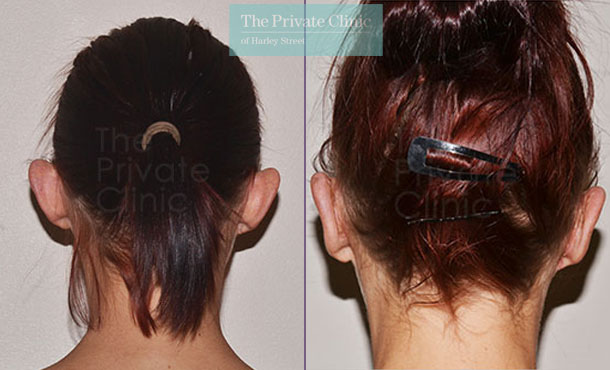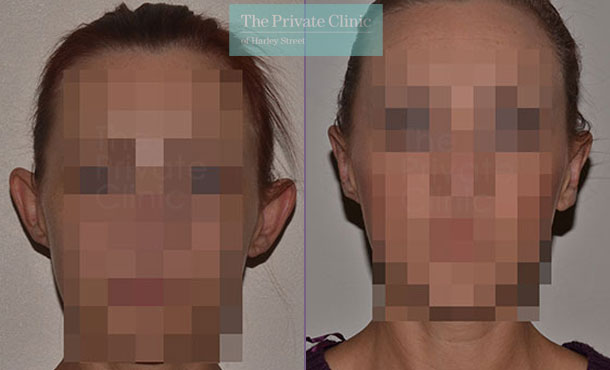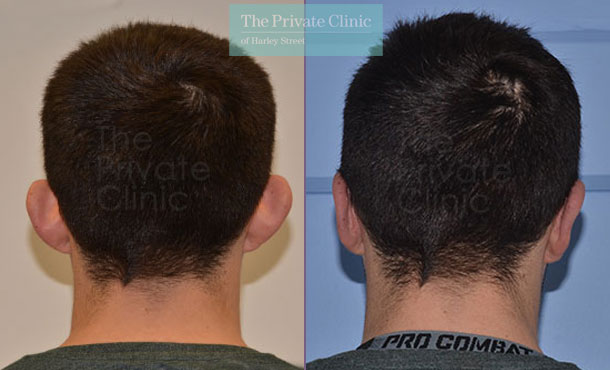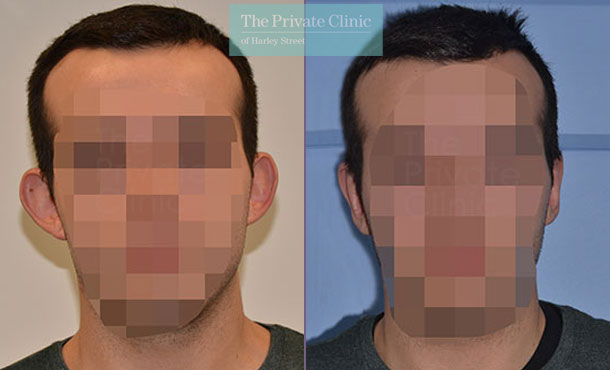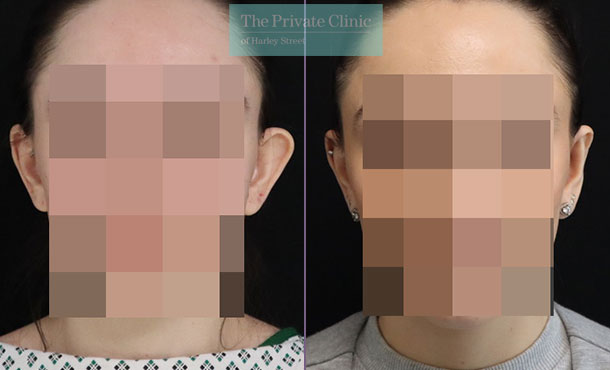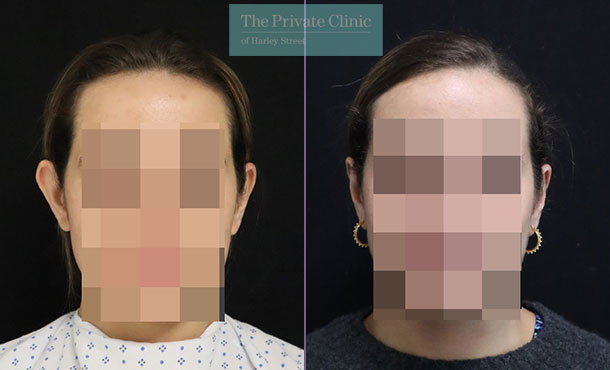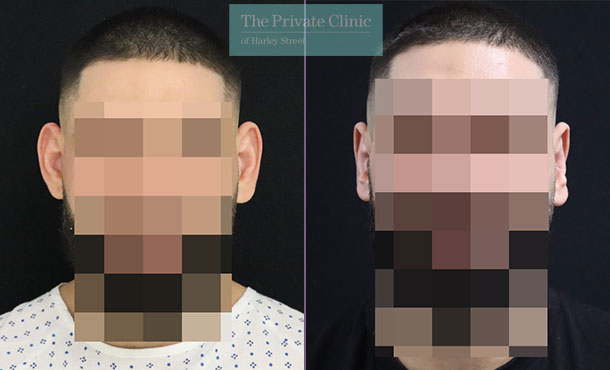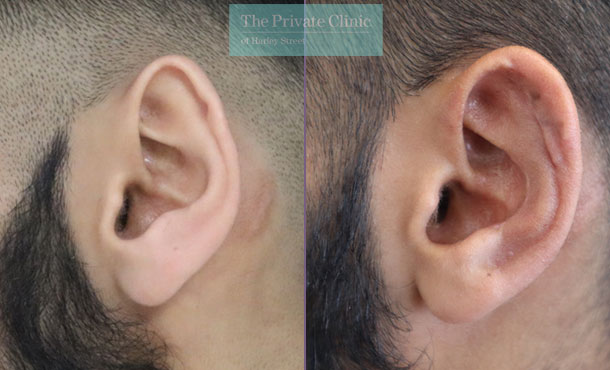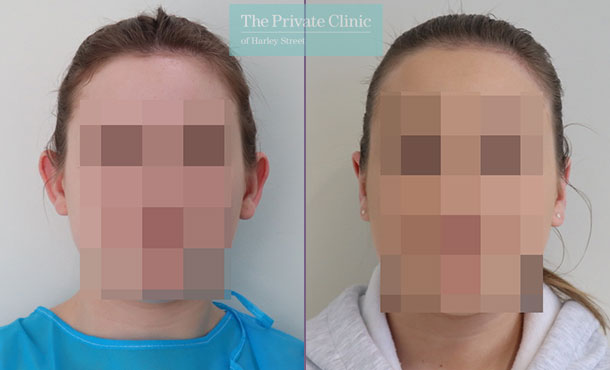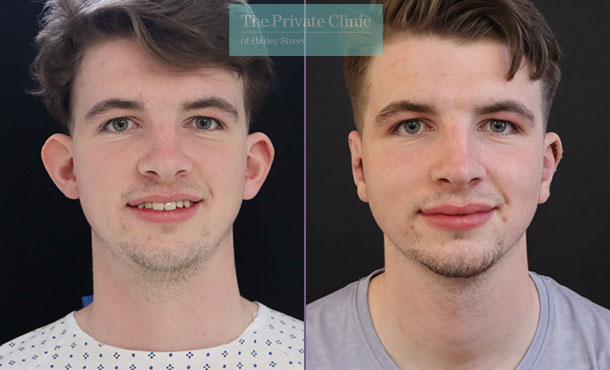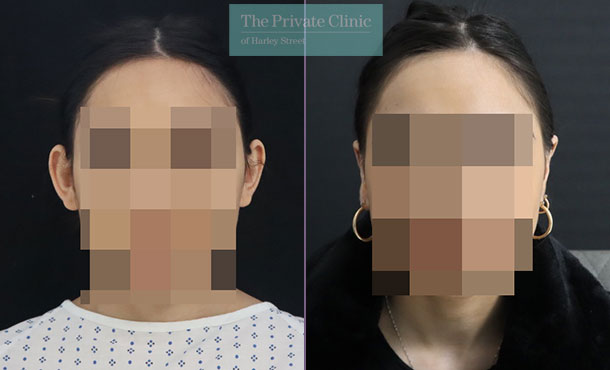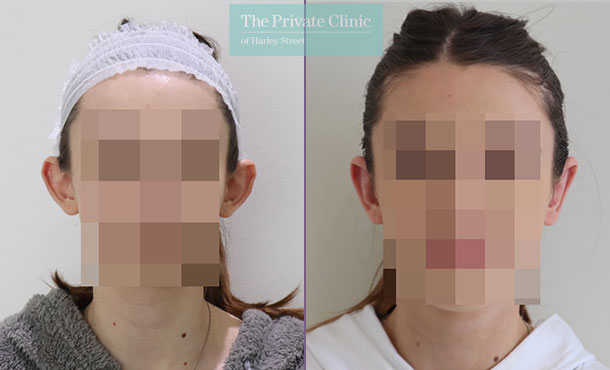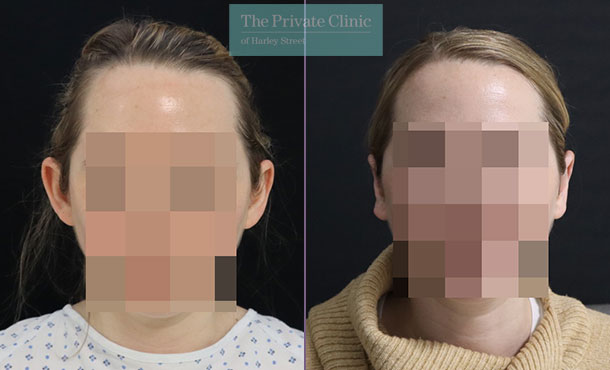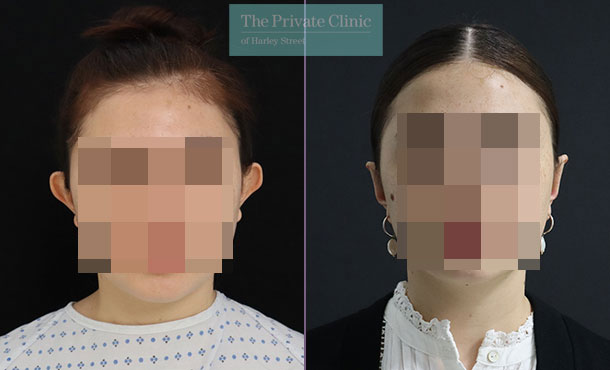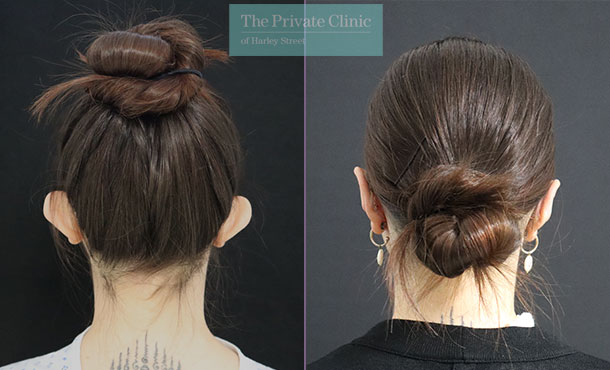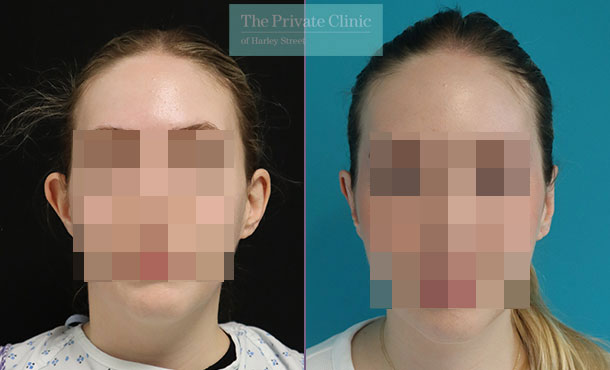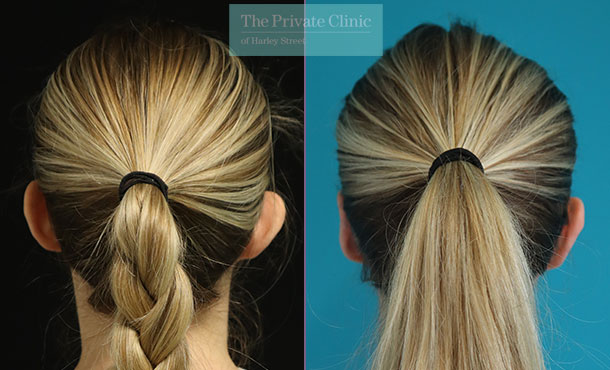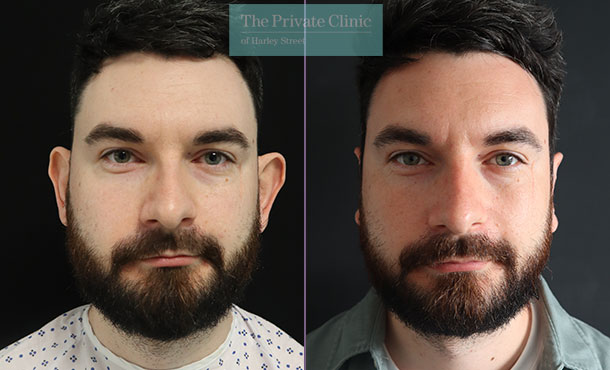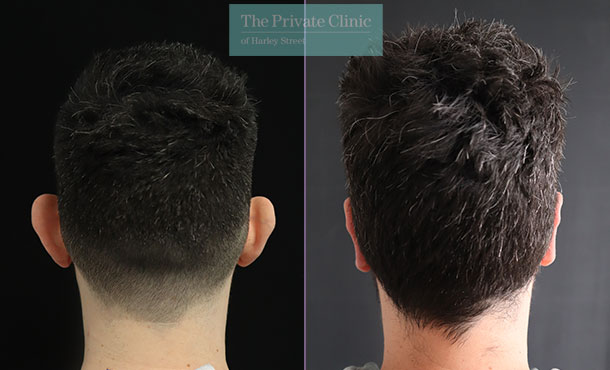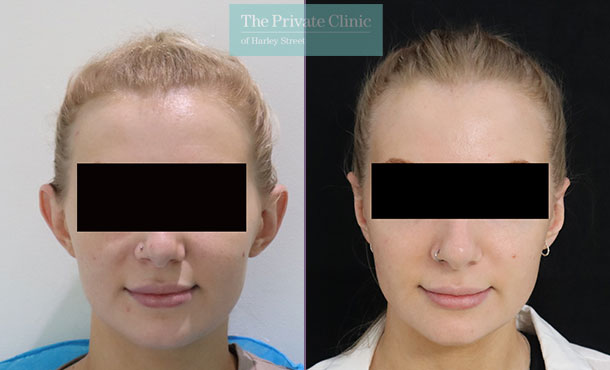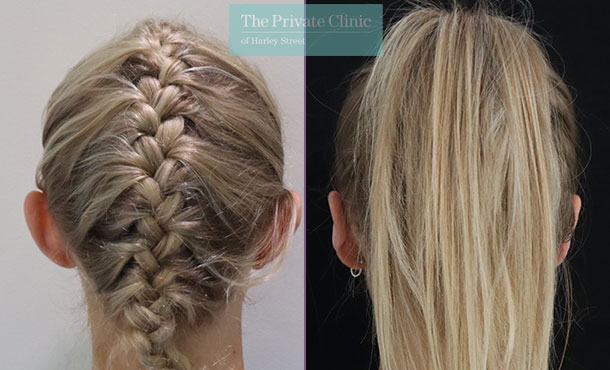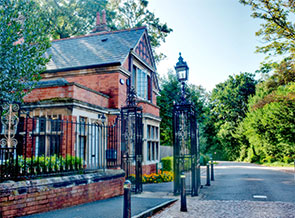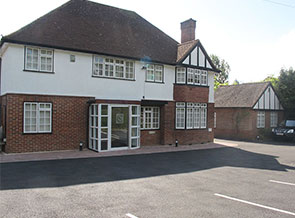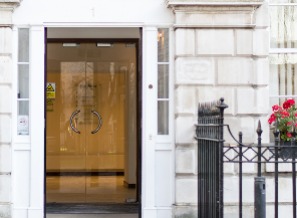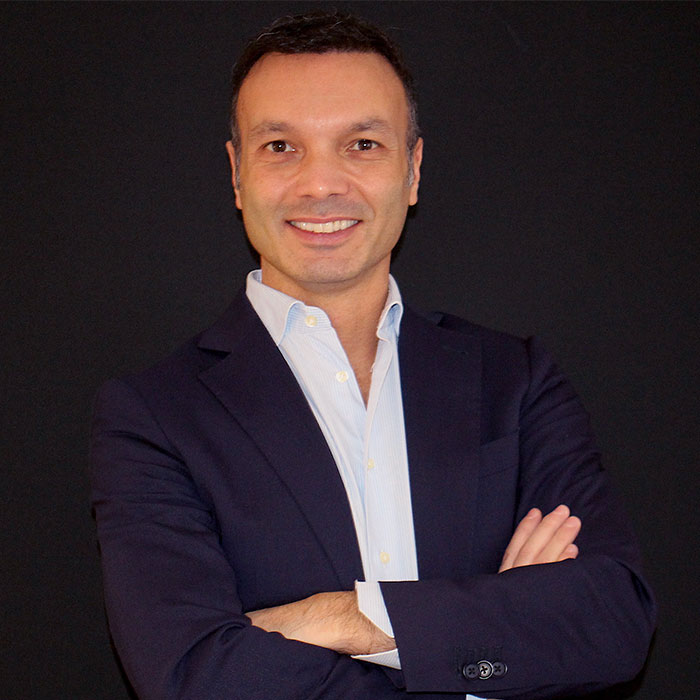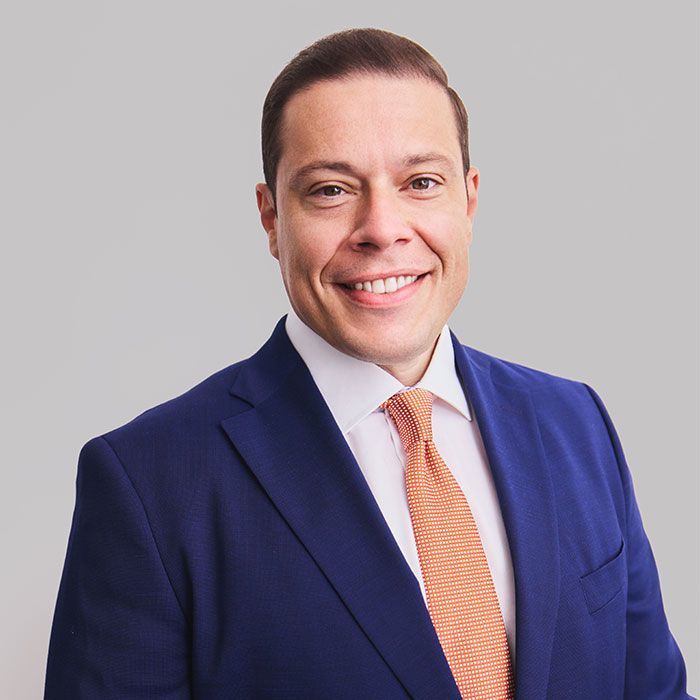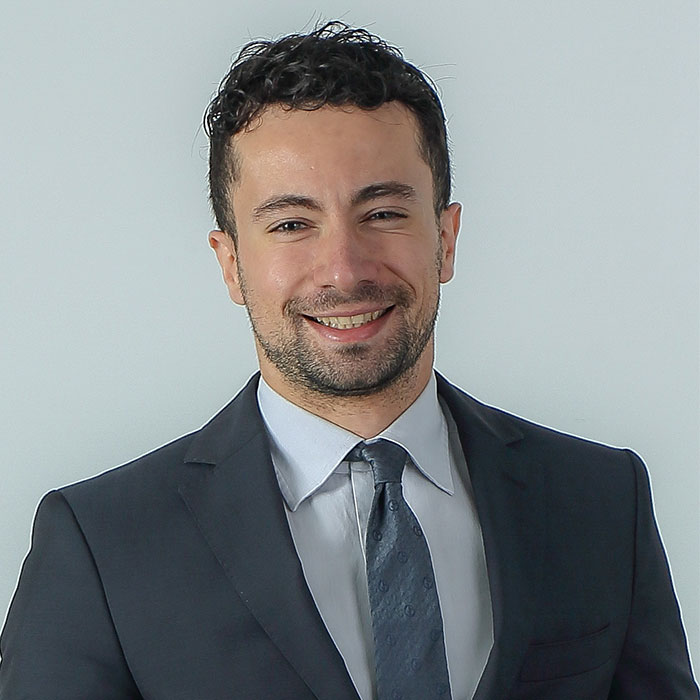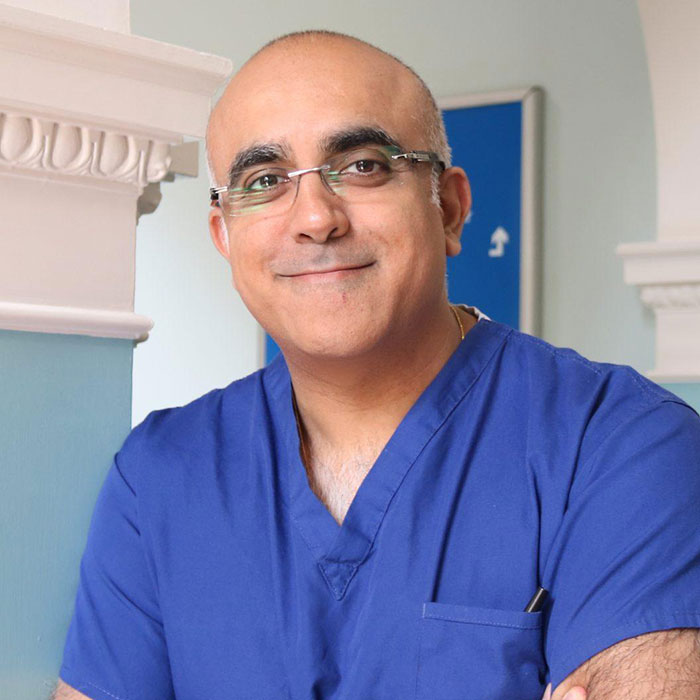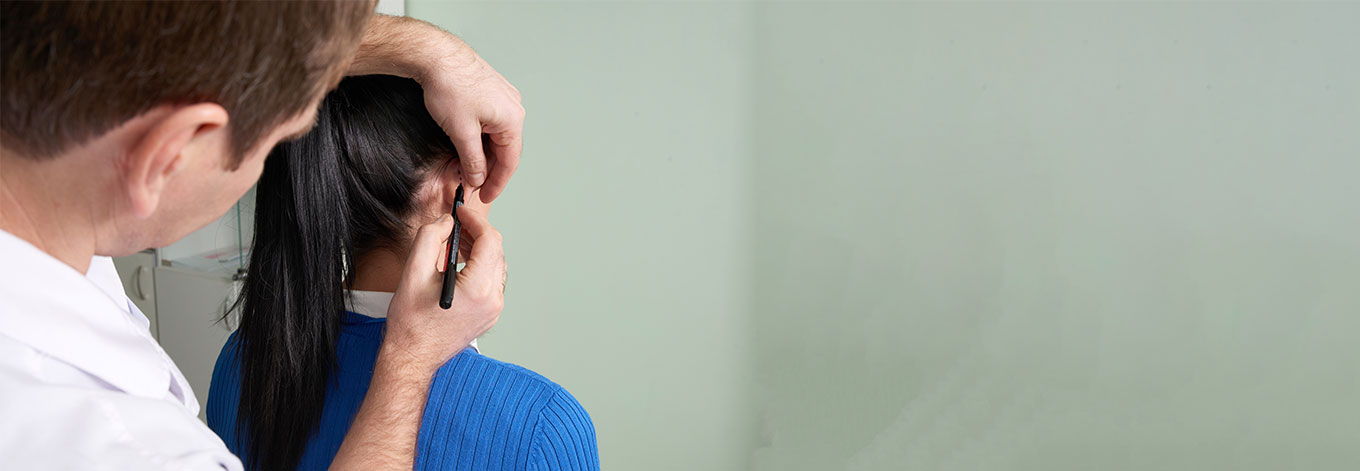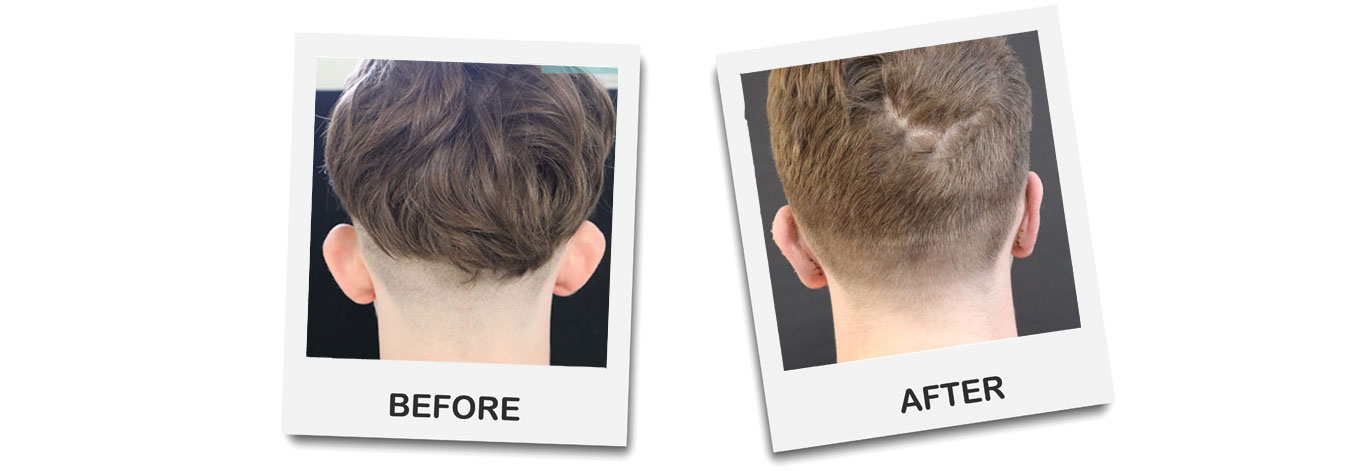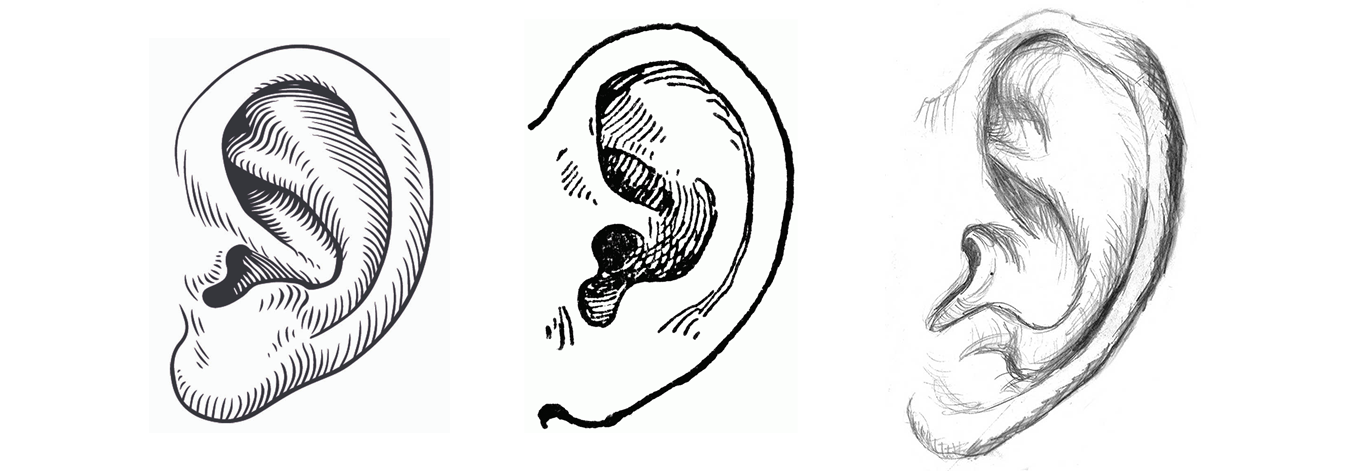
- Otoplasty is cosmetic surgery to reshape the ear
- Performed under local anaesthetic
- Renowned Ear Plastic Surgeons based in the UK
- 0% Finance Available
What’s on this page
- About this Treatment
- Before & Afters
- What to Expect
- FAQs
- Our Clinics
- Things to Consider
- Why the Private Clinic
- Meet the Surgeons
- Related Blogs & News
Medically reviewed by Mr Mark Lloyd, BM, MRCS (Eng), MSc, IM&T(Health), M.Phil, FRCS(Plast), ECFMG. GMC Number 4425050, Consultant Plastic & Cosmetic Surgeon for The Private Clinic of Harley Street, London.
Last Reviewed July 5th 2024
Related Cosmetic Surgery
Otoplasty (Ear Correction Surgery)
Large or protruding ears can affect confidence and self-esteem, while ears that sit far away from the head can be uncomfortable. Luckily there is a solution.
Ear correction surgery is also known as an Otoplasty or a Pinnaplasty. This is a surgical procedure to reshape and reconstruct the ear. If you are unhappy with the shape, size or position of your ears, you may benefit from a Otoplasty procedure.
In most cases, ear surgery is performed to:
- Pin back prominent ears
- Decrease or increase the size of the ears
- Reshape the cartilage of the ear
- Correct deformities of the ear
Otoplasty surgery is a very safe surgical procedure that can help to improve the appearance of the ears as well as other benefits such as an increase in self-esteem and confidence.
Consultant Plastic Surgeon, Mr Mark Lloyd specialises in ear surgery having performed 1000 ear surgery procedures with us.
Our team of highly knowledgeable surgeons are experienced in a range of techniques when it comes to ear reshaping surgery.
We have ear surgery consultation clinics located in London Harley Street, Birmingham, and Northampton.
The best option is to come in and see our Consultant Plastic surgeons who specialise in Otoplasty and ear procedures. They will be able to discuss what you want to achieve and show you before and after photos. It is a simple procedure that really can transform the look of your face.
Ear Pinning surgery involves ‘pinning back’ prominent ears that protrude from the head too much.
The cause of protruding ears is often down to excessive cartilage in the concha and/or an underdeveloped antihelical fold.
During the treatment your surgeon will make an incision along the crease-line behind your ear and remove any excess cartilage that is causing it to protrude. The ear cartilage is then reshaped to encourage the ear to sit in a new position, closer to the head.
Following the surgery, the area will be stitched up and a dressing wrapped around your head to support the cartilage in its new place.
The result of a Pinnaplasty procedure is naturally reshaped or resized ears that lie closer to your head. This procedure can be performed on one, or both ears to help reduce asymmetry.
If you are concerned about the enlarged size of your ears, then an ear reduction procedure can be performed to help bring oversized ears more in proportion to the rest of the face.
Macrotia is the medical term for ears that are oversized and is defined by ears that are measured to be larger than two standard deviations above the average size for an ear. Macrotia is often related to genetic health conditions such as Borjeson-Forssman-Lehmann Syndrome and Fragile X Syndrome.
Large ears are not always macrotia and are often inherited from family genes.
Ear reduction or macrotia surgery involves making incisions into the back or folds of the ear and removing excess cartilage and skin from the upper, lower, or whole ear to allow the surgeon to reduce the height and/or width of the ear. Stitches are then used to close the incisions.
Ear Reduction surgery takes around 2 hours on average. Following surgery your ears will have dressing applied to the area to protect and support the ears.
Ear pinning surgery can also be combined with ear reduction surgery however this may need to be performed in two separate procedures depending on the nature of the ear reduction surgery. This is best discussed with your surgeon.
Ear correction surgery is when surgery is performed on the ear to correct a deformity that may have occurred due to injury or has been present since birth.
Ear injuries are very common and in most cases are a result of biting or lacerations which may have required emergency surgery and resulted in poor results. Ear correction surgery can help patients improve the appearance of their ears and restore confidence.
Another form of ear injury is known as cauliflower ear which is often associated with rugby players. Cauliflower ear is medically known as an auricular hematoma and is caused when there has been trauma to the ear causing a blood clot to form and separate the skin of the ear from the cartilage inside. When left untreated, it can lead to a permanent deformity of the ear. Cauliflower ear is common amongst rugby players and boxers as their ears are subjected to friction and trauma on a regular basis which overtime results in the formation of a cauliflower ear.
Ear correction surgery can be performed on cauliflower ears and usually involves lifting the skin from the ear to reshape the thick tissue back into the original shape of the ear.
Earlobe reduction is a simple day case procedure performed under local anaesthetic. It is ideal for anyone looking to reduce the size of their earlobes. Some people can feel extremely unhappy or uncomfortable with the appearance of their earlobes
We also offer earlobe repair for those that have had their earlobes torn, stretched or split from previous piercings or trauma.
Please see our tribal earlobe treatment page or split earlobe treatment page for more information about these treatments.
Ear Reshaping at a glance
Procedure Time
2 – 3 hours
Anaesthetic Type
Local or general
Hospital Stay
Day case
Washing
7 – 10 days
Driving
1 week
Up & Mobile
1 day
Sexual Activity
4 weeks
Back to Work
1 week
Exercise
6 weeks
Travel
4 – 6 weeks
Full Recovery Time
6 weeks
Final Results
3 months
Support Garments
Head bandage for 1 week / supporting garment
Sleeping
Elevated on back for 2-4 weeks
Ask us a question
Ear Correction Before & After Photos.
Our excellent reputation for patient safety and satisfaction, honest advice and outstanding care means your journey with The Private Clinic will be an exciting experience. Take a look at some of our Ear Correction results below.
What to Expect
The Private Clinic has been treating patients for over 40 years with thousands of women placing their trust in us each year. We pride ourselves on being able to offer a personalised service. We have a team of friendly nurses and expert breast surgeons who understand the importance of this decision and will support you throughout your journey with us.
The Consultation
The first stage of your otoplasty treatment journey will be a consultation with one of our expert surgeons.
At your consultation, your surgeon will go through the otoplasty procedure in detail and examine the area.
Your surgeon will then discuss:
- Your medical history
- Your expectations from surgery
- Risks and Complications of ear surgery
- Aftercare
Following your consultation, you will be introduced to your dedicated patient coordinator who will be your point of contact should you wish to proceed with otoplasty surgery.

Pre-Operative Appointment
In the interests of patient safety all our patients are assessed against our patient selection criteria. Following your otoplasty consultation your medical history will be reviewed and the pre-operative nurse will choose which pre-operative tests to carry out which are going to be most appropriate to you. Most pre-operative assessments include a blood test, MRSA swabs, urine test and a blood pressure test.

Otoplasty Surgery
Otoplasty procedures usually take up to around 2 hours and can be performed under local or general anaesthetic, depending on the individual case. As specialists in minimally invasive procedures, we endeavour to carry out Otoplasty under local anaesthetic as often as possible, but will only proceed with the method that’s right for your needs.
During the treatment, your surgeon will make an incision along the crease-line behind your ear and remove any excess cartilage that is causing it to protrude. The ear is then pinned back along the fold to its new position, closer to the head.
Following the surgery, the area will be stitched up and a dressing wrapped around your head to support the cartilage in its new place.
The result of an otoplasty procedure is naturally reshaped or resized ears that lie closer to your head.

After your Otoplasty procedure
We recommend that you take approximately one week off work. You may be allowed to return home immediately after the procedure, but this will depend on your case and some patients may be required to stay in hospital overnight to ensure your safety and recovery.
Regardless of whether you’ve received a local or general anaesthetic, you will need to arrange for someone to take you home and you may be asked to have someone to stay with you for the first-day post-procedure. Your surgeon and medical team will advise you on how to best aid your recovery.
You will need to wear a full turban head-bandage for 5-7 days to help support the wound. Sutures used are normally dissolvable.
Your ears will be bruised, swollen and red for a few weeks – it can take up to 6 weeks for a full recovery. Any discomfort is normally well controlled with painkillers.
A headband, or head-bandage, will be needed at night for a further 2 weeks to stop the ear rubbing on the pillow at night.
Normal hair washing can be resumed once the bandages are removed.

The Private Clinic have collaborated with Chrysalis Finance to offer 0% finance for our patients.*
*Acceptance is subject to status. Terms and conditions apply.
Frequently Asked Questions
An Otoplasty procedure typically takes about two to three hours to complete. Depending on the case and the desired results, the treatment can be performed under local or general anaesthetic.
An otoplasty or pinnaplasty procedure can be performed under a local anaesthetic in most circumstances however this is decided on an individual case basis and you will be told at your consultation what to expect on the day of your procedure.
An otoplasty procedure is performed under local or general anaesthetic to ensure that you are comfortable and feel no pain. You may experience some mild discomfort after surgery which can be managed with painkillers and will subside after a few days.
Generally, a child will have ear correction surgery before the age of 5 and this is decided by the parents. When the child is between 5 and 13 they are usually not too worried about their appearance but then after age 13, there seems to be popularity again for those favouring the surgery. We are always able to operate again on the same area if you feel you need to have the procedure again, but always make sure you talk to your surgeon about your realistic expectations.
To find out about your suitability for ear correction surgery, make a consultation to see one of our expert plastic surgeons.
Otoplasty (Ear Correction Surgery) is Available in these Clinics
Things to Consider
Our advice on what to consider when deciding to have a Otoplasty (Ear Correction Surgery) procedure:
1. When choosing a clinic, you should always do your research, and only go to an established, reputable clinic. The Private Clinic has been in the cosmetic surgery industry for over 40 years. We are here to answer all of your questions and give you peace of mind.
Read MoreWhy Choose The Private Clinic
- We have over 40 years’ experience in Medical Cosmetic procedures and advanced non-surgical treatments.
- World class ear specialist surgeons
- Dedicated care with your expert surgeon and nursing team, and a 24 hour help line.
- As many post-operative care appointments with your surgeon, doctor and nursing team as required.
- We have state of the art hospital facilities.
- 5 Star Trustpilot Rating
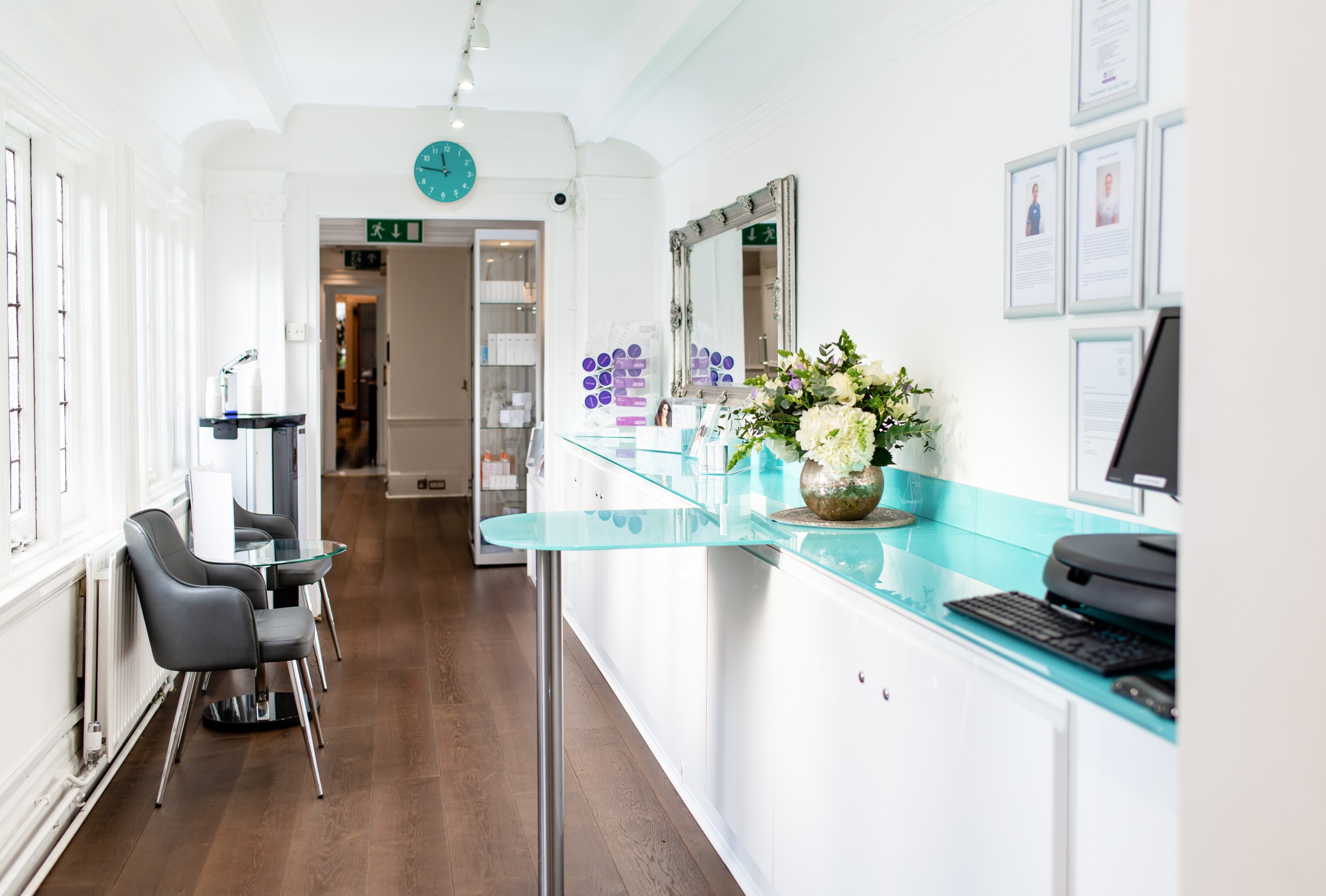
Meet our Surgeons
We have a dedicated Plastic Surgeon and medical team who will be with you throughout your journey. At The Private Clinic Otoplasty (Ear Correction Surgery) is performed by some of the UK’s top consultant plastic surgeons who have decades of experience.
- British Association of Plastic, Reconstructive and Aesthetic Surgeons (BAPRAS) – Prominent Ears
- British Association of Aesthetic Plastic Surgeons (BAAPS) – Setting back prominent ears
- NHS – Ear Correction Surgery including ear pinning
- National Institutes of Health (NIH) – StatPearls – Otoplasty – Kennedy KL, Katrib Z. Otoplasty. [Updated 2023 Jul 3]. In: StatPearls [Internet]. Treasure Island (FL): StatPearls Publishing; 2024 Jan-.






